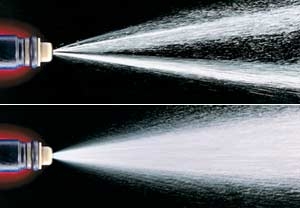I am regularly asked to comment on a particular engine (fuel system) cleaning system once featured on a popular automotive TV show.
Does the product work? Well, actually, yes, it does. It will clean the fuel system and help remove combustion (carbon) deposits. However, I am not convinced it is anything new or innovative except how it has been presented and released to the market. The product design, presentation, and choice of celebrity endorsement are pure genius. I don’t think they could have done it better or chosen a more suitable candidate to endorse the product. I am a fan of the unsaid celebrity, by the way.
Cleaning equipment that you connect directly to fuel systems of both petrol and diesel engines has been around for more than two decades. It was popular in the 1990s and at the start of this century. But its popularity declined for the simple reason that in-tank fuel cleaning technology had improved to the degree that such apparatus was no longer necessary, except under certain circumstances (i.e., engine running very poorly). Even rapid carbon removal (combustion and post-combustion, DPF, etc.) is now achievable through fuel-based chemistry. Patented fuel-borne catalyst technology for removing post-combustion carbon has been in use for some time and is very successful. As a result, this type of fuel system servicing became an unnecessary gimmick, in my opinion. The creators of this cleaning device made it sexy and credible again, and to a degree, a little more affordable, with a clean costing around £80, rather than the £100+ that was charged more than a decade ago.
In my view, the type and quality of cleaning chemistry are significantly more important than the method of administration. Adding a product directly to the fuel system—no matter who the manufacturer—might look impressive, but in most cases, it is not necessary.
And this is my point; adding a high-end fuel cleaning product to the fuel system can clean just as well.
Arguably, a high-end fuel cleaning product can, in some cases, work even better if you consider that it can clean the entire fuel system from the tank onwards, including the fuel filter. It is often the case that companies offering both types of cleaning products use the same chemistry, except that the direct-to-fuel rail method product is already mixed in with a base fuel.
Where rapid cleaning is required, many professional garages will add a full-strength fuel cleaner to an almost empty tank (i.e. 10 litres) and then let the engine idle for 15-30 minutes. This can provide an intense and rapid clean with minimal risk because the engine is not under any load.
Of course, supporters of these products will point out that there are plenty of good reviews of these systems. That is very true. But similarly, there are many good reviews for high-end, in-tank fuel system cleaning products, too. I could bore you all day with the many hundreds we have accumulated, with some customers reporting a profound change in engine running and performance. And they aren’t wrong. If there are fuel system and carbon deposits, both methods will produce tangible results that the customer will feel. If there are no discernible deposits, then neither method will make a difference.
Another question is, “Will this device remove deposits from the rear of intake valves on direct injection engines, such as those in BMWs, Audis, Minis, etc.?” No, but neither will in-tank cleaners. Both methods might remove a few of these deposits, but not enough to consider them successful. This is the new challenge manufacturers and aftermarket solution providers face – creating effective intake valve cleaning by administering detergents directly through the air inlet. But this is a conversation for another day.
Conclusion: It works, but are you getting more for your money than you would with a much less costly, high-strength professional in-tank cleaner? My short answer? No.




 categories
categories